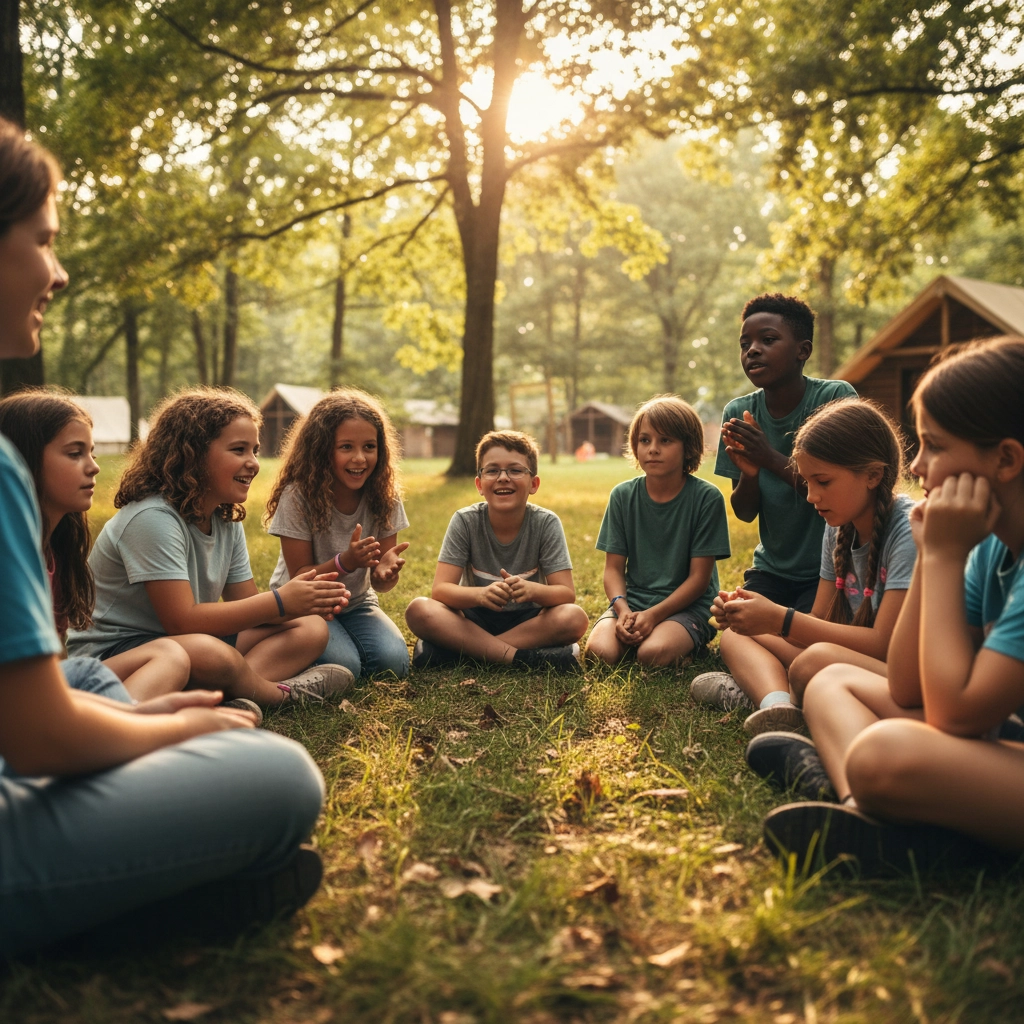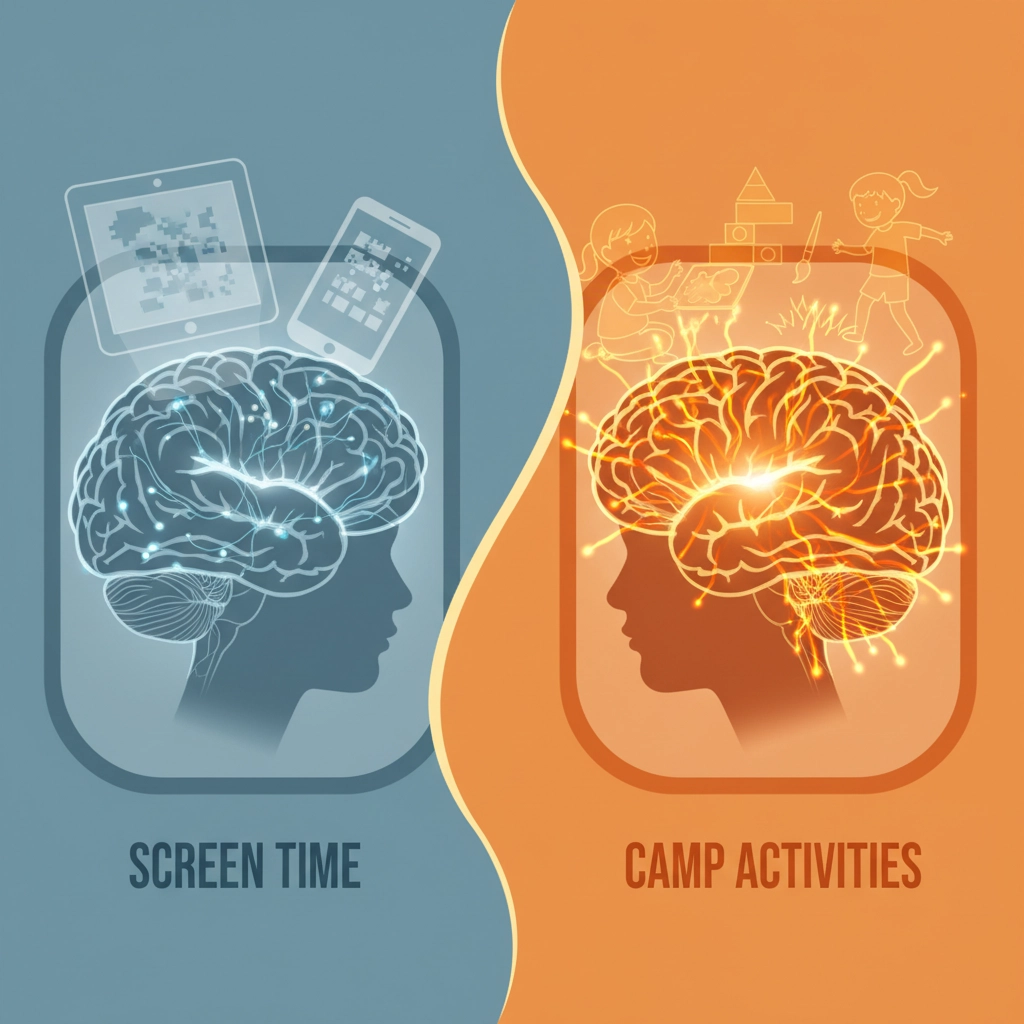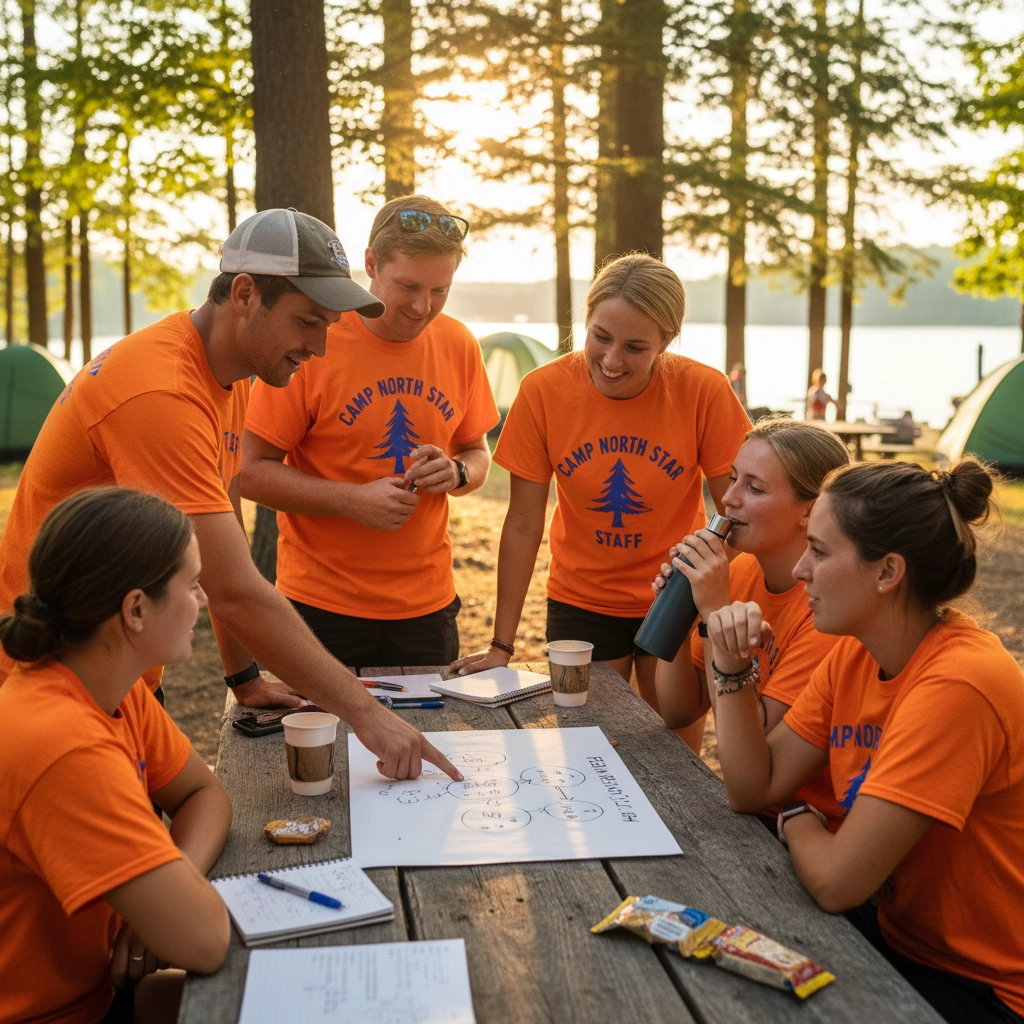The Summer Camp Daily Brief – October 21, 2025
- Matthew Kaufman

- Oct 21
- 5 min read
The story everyone's talking about
Picture this: Over 5,000 kids in grades 3 through 6, spread across Canada, all participating in a massive study. The researchers wanted to know one simple thing, does screen time actually affect how well kids perform in school?
The answer? A resounding yes.
The study found that as screen time increased, reading and math scores measurably declined. We're not talking about toddlers glued to tablets here. These are 8, 9, 10, 11, and 12-year-olds: kids who are right in our camp sweet spot.
But here's where it gets interesting for us camp folks. This isn't just about academic performance. It's about something much bigger: the developing brain's need for active engagement, problem-solving, and real-world interaction. And that's exactly what we do best at camp.

What this really means for camp
When kids arrive at your camp after spending hours scrolling, gaming, or passively consuming content, they're not just tired: their brains are operating in a different mode. Think of it like this: screens train the brain to expect instant gratification, constant stimulation, and passive consumption. Camp asks for the opposite: patience, sustained attention, and active creation.
That disconnect? That's both our biggest challenge and our greatest opportunity.
You've probably seen it firsthand. A camper who seems disengaged during morning circle time, slower to jump into activities, or who struggles to focus on multi-step instructions. It's not that they're difficult kids: their brains are just calibrated differently.
The good news is that camp provides exactly what these screen-saturated brains need: real problems to solve, genuine connections to build, and hands-on experiences that engage multiple senses at once.
The staff training game-changer
Here's where most camps miss the mark: they focus on the kids without training their staff to recognize and respond to screen-transfer effects.
Your counselors are the front line of this battle. They're the ones who can spot when a camper's sluggish response isn't attitude: it's brain fog from too much passive screen time. They're also the ones who can design the perfect antidote: activities that wake up dormant problem-solving skills.
Think about it. When a counselor understands that excessive screen time can reduce curiosity, attention span, and social engagement, they can intentionally craft experiences that rebuild these capacities. Instead of getting frustrated with a "difficult" camper, they can see someone whose brain needs a different kind of activation.

The camp advantage
What makes camp uniquely positioned to address this challenge? We offer something screens simply can't: unpredictable, multi-sensory, socially complex experiences that require real-time problem solving.
When a camper has to figure out how to get their entire cabin across a "lava pit" using only three planks and a rope, their brain engages in ways that no app or video game can replicate. They have to negotiate with peers, think spatially, adapt to failure, and persist through frustration. These are exactly the cognitive muscles that passive screen time tends to weaken.
But here's the key: it doesn't happen automatically. It requires intentional design and skilled facilitation from staff who understand what they're doing and why it matters.
Five moves to try this week
Start with a brain reset ritual When kids arrive each day, especially after lunch or rest periods, incorporate a 5-10 minute "brain activation" activity. This could be a physical challenge, a memory game, or a group problem-solving task. Think of it as clearing the mental cache and switching the brain from passive to active mode.
Train staff to spot the signs Teach your counselors to recognize screen-transfer symptoms: difficulty maintaining eye contact, shorter attention spans, reduced curiosity about activities, or seeming "checked out" during group discussions. Once they can spot these patterns, they can respond with targeted interventions.
Design low-tech, high-engagement alternatives For every activity that might typically involve technology, create an analog version that's even more engaging. Instead of using tablets for a scavenger hunt, design one that requires kids to interview staff members, solve riddles, or create something with their hands. The key is making the non-screen option feel more exciting, not like a punishment.

Create reflection opportunities With your older campers, build in moments to talk about the difference between active and passive engagement. After a particularly challenging activity, ask them: "How did your brain feel during that? Was it different from watching a video or playing a game?" Help them develop awareness of their own cognitive states.
Partner with parents Send a simple note home explaining what you're seeing and why it matters. Frame it positively: "We've noticed that kids who spend less time on screens before camp tend to be more engaged and creative during activities. Here are some ideas for screen-free morning routines that can help your child get the most out of their camp experience."
The bigger picture
This isn't about demonizing technology or pretending we can turn back the clock. Kids will continue to live in a digital world, and that's okay. Our job isn't to shield them from screens: it's to give them the cognitive tools and self-awareness they need to use technology intentionally rather than being used by it.
When we help kids experience the satisfaction of solving a real problem with real consequences, we're not just teaching them to think: we're showing them what their minds are capable of when they're fully engaged. That's a lesson that no app can teach.
The research is clear: excessive screen time affects developing brains in ways we can measure. But here's what the research can't capture: the look on a kid's face when they realize they figured something out entirely on their own, or the confidence boost that comes from successfully navigating a social challenge without a mediating screen.

Your next move
Start small. Pick one activity this week and redesign it with cognitive engagement in mind. Instead of just keeping kids busy, ask yourself: How can this activity strengthen their attention span? How can it require genuine problem-solving? How can it build the mental muscles that screen time tends to weaken?
Then watch what happens. You'll likely see not just more engaged campers, but more satisfied staff who feel like they're doing meaningful work.
The screen time study from Canada is just one piece of a much larger puzzle. But it confirms what many of us have been sensing: camp isn't just a fun place to spend summer days: it's a crucial counterbalance to an increasingly passive digital world.
And in a world that's training kids to consume content, we're training them to create solutions. That's not just good for their test scores: it's essential preparation for the challenges they'll face long after camp ends.
Want more insights like these delivered weekly? Follow @mattlovescamp on Instagram for behind-the-scenes camp industry updates and join our community of camp professionals at www.ilove.camp.



Comments